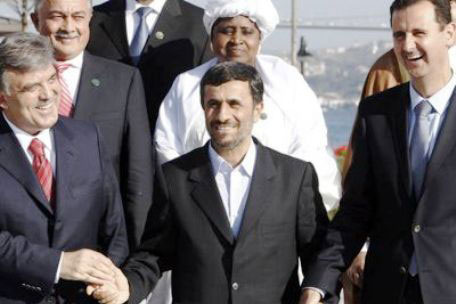Iran and Turkey: Conflicting interests in Syria

Last week, in an interview with Turkish media after returning from the UN General Assembly, Turkish PM Recep Tayyip Erdogan pointed to Iran as the only country that could help Bashar Assad survive the massive protests geared to topple his regime.
Iran appreciated Syria’s role as its strategic arch-ally in the region and is on tenterhooks as the Syrian regime is in a shaky situation which may lead to its overthrow by the opposition. Obviously, the next regime will not be as Iran-friendly as the Assads have been during the last three decades. For Iran, a new Syrian government implies losing a strategic base on the borders of Israel. Turkey, on the other hand, looks at the situation from a different angle due to its strategic, economic and military considerations and the implications of the Arab Spring for its national interests. Ankara has concluded that with Bashar Assad’s government, reforms are almost impossible, hence its campaign to replace the regime. Turkey has EU on its side in this course, though its immediate neighborhood with Syria makes the issue far more important. Damascus’ territorial claims over the historical Antioch region, disputes over each country’s share from the Euphrates River and Iran's ties with Syria are among Ankara’s deepest concerns.
While Turkey has proved flexible in adapting itself to the transformational regional developments by a major shift of strategy, Iran has erroneously stuck to its age-old agenda and has not wavered in its support for the Syrian government. The citizens, not the governments, are the priority in foreign policy: a government welcoming pro-democracy protests with bullets and military suppression (tools to be used against foreign enemies, not domestic groups), deserves chastisement.

